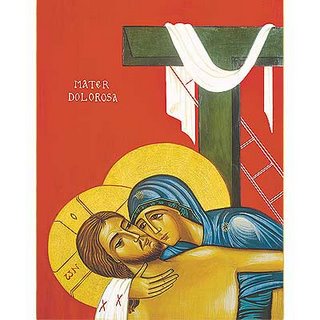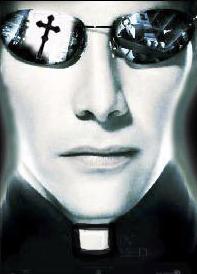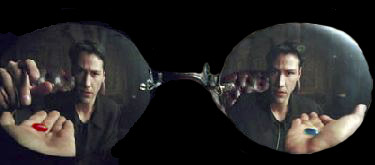No Easter without the Cross

Few pilgrims take the road through Holy Week to the Sunday of Resurrection. It seems that so many go from the 'Hosannas' of Palm Sunday to the 'Christ is Risen' anthems of Easter Sunday.
But isn't that typical of the world in which we live? We're all right with bunnies and peeps but not the sadness and melancholy of Maundy Thursday nor the bloody cross of good Friday.
It's time that we call people to take up their cross and follow the savior. 'For where I am, there will my servant be also,' says Christ. Now is not the time for a spirituality of spring, but for the gospel. As Pope John Paul II said, "This is no time to be ashamed of the Gospel. It is the time to preach it from the rooftops. Do not be afraid to break out of comfortable and routine modes of living, in order to take up the challenge of making Christ known."
It is a challenge to make our crucified God known. But isn't this what our holy season is about?




Post a Comment
10 Comments:
Mel Gibson got in trouble with some Christians for bringing the crucifixion out of the closet, I believe. Those who follow the "good" news only have amended the Good News to eliminate the atonement because, as they usually aver, "My God would not be so cruel." In saying so, they have identified their own problem. They have their own "version" of the scripture, carefully sculpted to remove a God of Wrath and Judgement. It is more pleasing to moderns, but it is likely an abomination to God because it removes the meaning of the sacrifice of the Lamb of God. the event for which Christ was born one of us.
Ahh, my dear Morpheus, you make the "atonement" exclusive property of the cross, whereas in truth it is only one piece of the puzzle. We are "saved" every bit as much by the Incarnation, life and ministry, Resurrection, and Ascension of Christ as we are by His Passion. I, like you, am most moved by the Passion narrative. I venture a guess that this is a natural inclination for us given our Western/Latin heritage.
I suppose I would be one of those that you label as having my own "version" of scripture given my "interpretation" of the crucifixion and the atonement in general. I don't see the brutal death of our Lord as in anyway, anyway at all, associated with the "god" of Wrath and Judgment you mention. Seems to me your reading St. Anselm's Cur Deus Homo into scripture, not the other way around. There are enough "atonement" theories bandied about as to leave the introspective person in the pew, such as myself, in a state of confusion and chaos. The notion of substitution and satisfaction that you are alluding to is a metaphor gone awry in my estimation, and frankly does more damage than good. This form of atonement is about saving us from God and the consequences (read Hell here) of sin, instead of saving us for God and from the dis-ease of sin itself. I prefer to think we are redeemed, even ransomed, from the bondage of sin (not the Devil—I spit in his weak ass face, though I suspect the work of Christ will in due time make even him whole).
Call me a liberal if you must, but for me (yes, I know, the term “me” speaks at the individual level and raises the red flag of relativism, etc.) the person and work of Christ was and is about overcoming evil with good. And yes, yes indeed, it required the worst form of suffering and sacrifice...........but not to His Father. In my mind, nay heart, the deepest and most moving Mystery is the Passion narrative. I can’t say I completely understand what it is about, but I feel more and more certain about what it is NOT. In the end, the “cross” event was a “substitution” of Love that happened once and for all, yet also continues to this day. Go figure.
Well, you certainly have me scratching my head, Constantine. What in the world are you going on about this time. The problem with getting your bible in little bitty pieces in the liturgy in the Roman church, is that you lose the context. How can we not understand Christ as substituting sacrifice? The bible is covered with blood sacrificial references, from beginning to end. I see the importance of the Incarnation, but Jesus was very clear about what he was born for and why he was going to Jerusalem. Your Peter tried to tell him his Passion wasn't that important, but Jesus smacked him down about it in no uncertain terms.
And, how do you make sense of what Jesus said on the cross without the context of sacrifice? From John the Baptizer's singling Jesus out as the lamb of God who takes away the sin of the world right up to "Tetelesti" which is quite easily translated as "It is paid", it seems pretty clear what is going on...at least to me and Mel. But, we haven't had the "advantage" of so much Jesuit training. Maybe with a little more theology, we'd be confused, too.
I could use a cigar. You? Perhaps after the resurrection?
Morpheus,
I too could use a good cigar (Hemingway Short Story to be exact) and especially some decent Scotch. After the Resurrection would be good bro.
I hope you took no offense. If you did, my apologies. My "RPMs" get a little revved on this subject. I don't doubt the imagery of scripture relative to "sacrifice." That being said, I have some difficulty with it. For example, the story of Abraham and Isaac gives me great pause as to the "inspiration" of said scripture. I can't imagine, indeed I can’t fathom that our Lord would do such a thing. At a minimum, I question the “standard” interpretation.
Let us talk brother in charity and good will w/ Scotch to boot.
Never read any pique into my prose. I have too much fun here to get angry, Constant-one. I do get a little intense occasionally. Y chromosome action, I think.
One of the many things that C. S. Lewis has helped me with is seeing time the way God does. Since God is outside of time and space, says Lewis, He sees the creation as a finished tapestry with a beginning and an end. Like a work of visual art, it has themes which work their way across the tapestry. One of the most delightful, to me, is the Abraham/Isaac parallel to the Father and the Son. The sacrificial context and the echo of this beginning in the relationship of God to his people is wonderful. Nearly forgotten, the story comes back at the Crucifixion where, like Abraham, God does not withhold His Son, but gives Him to us in death for eternity, but shows us that death is not what we thought it was at the same time. So, I'm not only an afficianado of the Abraham/Isaac story, I'm pretty sure it is a vital lesson. He that would have his life must lose it.
I think Mr. C has a Calvinist hangover...
The purpose of this string was to look to the cross and not straight through to the glory of the resurrection. Couldn't do it, could we.
"Few pilgrims take the road through Holy Week to the Sunday of Resurrection."
I too grew up in a tradition that seemed to skip to resurrection. But I don't understand why people would want to do that. Besides the fact that taking up one's cross isn't particularly pleasant, anyway. But at least it reflects the pain and brokenness of our lives, our world. And gives us the hope that God does not ignore our brokenness, but will one day make creation whole again.
I picked this up online:
"I simply argue that the Cross should be raised at the center of the marketplace as well as on the steeple of the church. I am recovering the claim that Jesus was not crucified in a cathedral between two candles; but on a cross between two thieves; on the towns' garbage heap; at a crossroad, so cosmopolitan they had to write his title in Hebrew and Latin and Greek... at the kind of place where cynics talk smut, and thieves curse, and soldiers gamble. Because that is where He died. And that is what He died about. That is where church-men ought to be and what churchmen ought to be about." -Celtic Spiritual Leader, George McLeod
Post a Comment
<< Home